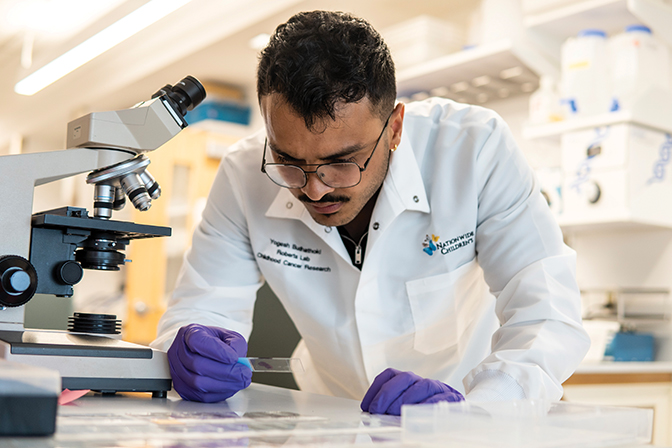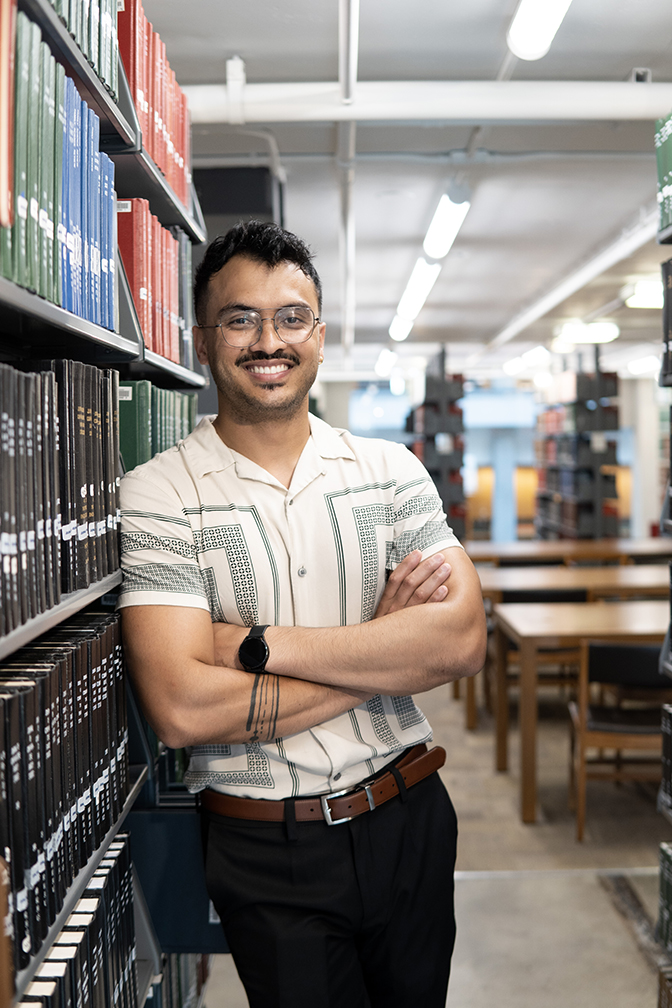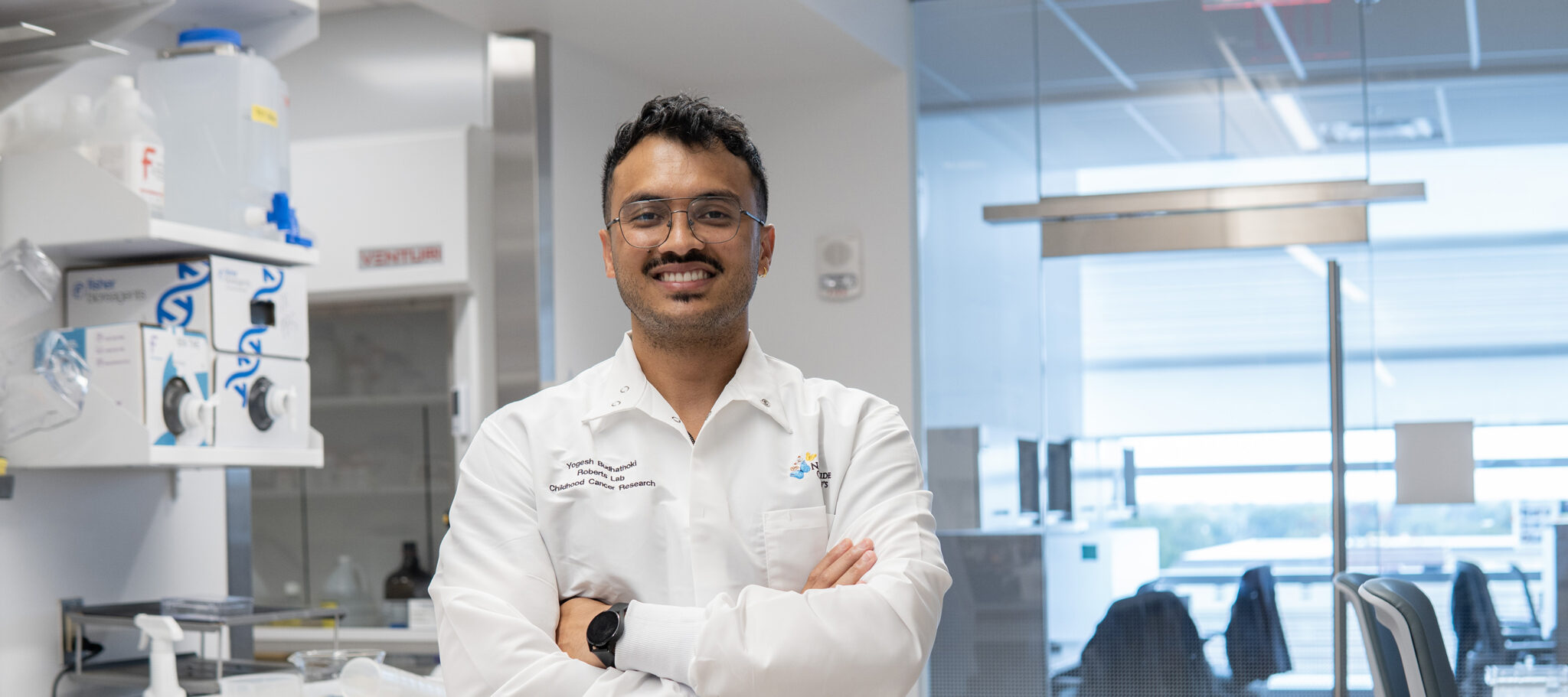Until age 12, Yogesh Budhathoki ’22 had lived with his extended family in southeastern Nepal, with grandparents, aunts, uncles and cousins. Then, he and his parents and brother started their own household. With no employment options, his father continued the family tradition of subsistence farming on the flat plains near the border of West Bengal, India.
Their house was typical for the area, composed of wood and cement with a tin roof that roared under the rains. They raised cows, buffalo and chickens, planted and harvested rice and grains. Yogesh would accompany his father to sell enough products to put a little cash back for emergencies and spend the rest at a grocery store across the border. They made less than a dollar a day, but that was enough to get by.
Yogesh was useful on these trips, not only because he knew Hindi and some English, but also because his father did not know numbers and, beyond remembering the pictures on the money, could not tell the difference between bills.
“My father would always tell me to study just so people would not fool me,” Budhathoki said. “He had been fooled before, and he told me to study harder.”
The culture demanded study as well, emphasizing the sciences so that the young people could grow up to be doctors and engineers. Budhathoki excelled in biology and chemistry, and by high school, he won a scholarship to a private boarding school in Kathmandu. Though tuition was covered, his—and later, his brother’s—living expenses amounted to about $60 per month, twice what the family brought in selling what they had raised. Budhathoki’s mother moved to Malaysia to find work and send money back to pay for her son’s education.
“I was a very shy person,” he related. “The culture is so conservative that you become paranoid to even date someone. So, there is no partying, no partying at all. All I would do was study.”

Budhathoki’s studying paid off. In 2016, he was about to graduate at the top of his class and needed to think about college. The dream was to go to the United States where, at least as it appeared in the movies, everyone was wealthy. He had learned that from movies like “Mean Girls” and “Forrest Gump,” which also helped him with his English.
During his search for an American education, he discovered Berea College. There were videos of students doing Asian dancing, playing Bluegrass music. He contacted Indian and Nepalese students who had attended to inquire about their experience. There were other options, but none that offered what Berea did.
“Berea was No. 1 on my list,” he said. “If I got accepted, I would give up other colleges because it did not cost me money. I was not rich. I needed that scholarship.”
Budhathoki had a little money from time to time from a volunteer job that paid for his lunch. He skipped lunch for a week to pay the $7 needed to send his application via Federal Express. Six months and several rejection letters later, Budhathoki received an email saying he had been accepted to Berea.
“The first thing I did was call my mom. She was really happy, and I was really happy.”
The only obstacle remaining was coming up with the $3,000 necessary to pay for exams and the visa process. His mother sacrificed about two years’ worth of salary to pay for it all.
“The first two months in Berea were a honeymoon phase for me,” Budhathoki remembered. “I loved it. New people, new food, everything, other than the digestive problems because I was not used to it.”

In the Mountaineer Dining Hall, Budhathoki discovered a love of pesto. Soon, though, the honeymoon phase faded, and the reality of living and studying abroad set in. Culture shock was compounded by assignment deadlines and lack of the English proficiency needed to feel comfortable, to make new friends. He became very homesick.
“There were times I had an existential crisis,” Budhathoki said. “I would wake up and ponder what I was doing in this country, why I was here. But at the same time, I remembered all the hard things in the past and how much I wanted to be here. Then, I had no choice but to keep grinding. It took me two years to stand on my feet and be able to hold a conversation or write a paper.”
And then COVID hit. Budhathoki’s new American friends went home, but he found community among the Nepalese and international students who remained.
“One good thing about Berea is that there is a great international community. We had clubs, parties and cookouts.”
He served as president of the Cosmopolitan Club and Asian Student Union, and that got Budhathoki through until he graduated in 2022. Since then, Yogesh entered the Ph.D. program at Ohio State University and is now pursuing his doctorate at OSU’s Abigail Wexner Research Institute Center for Childhood Cancer. His research will one day lead to new genomic cancer treatments.
“Berea transformed my life from being a poor student in a developing country who doesn’t know a lot to somebody who knows a lot more about the world,” he said. “I got into a Ph.D. program—I would have never imagined.”
It will be a while before Yogesh can return home. He plans to get another degree in business and enter the pharmaceutical industry. He thinks maybe when he’s 40 or so, he’ll head back to the plains of southeastern Nepal to bring his pharmaceutical business knowledge to his home community.
“The most important thing I learned at Berea,” he said, “is a sense of community, a sense of giving back to your community.”



His story is so inspiring and it’s a testament of dedication, determination and perseverance. Congratulations scholar.
Inspiring Yogesh Brother.